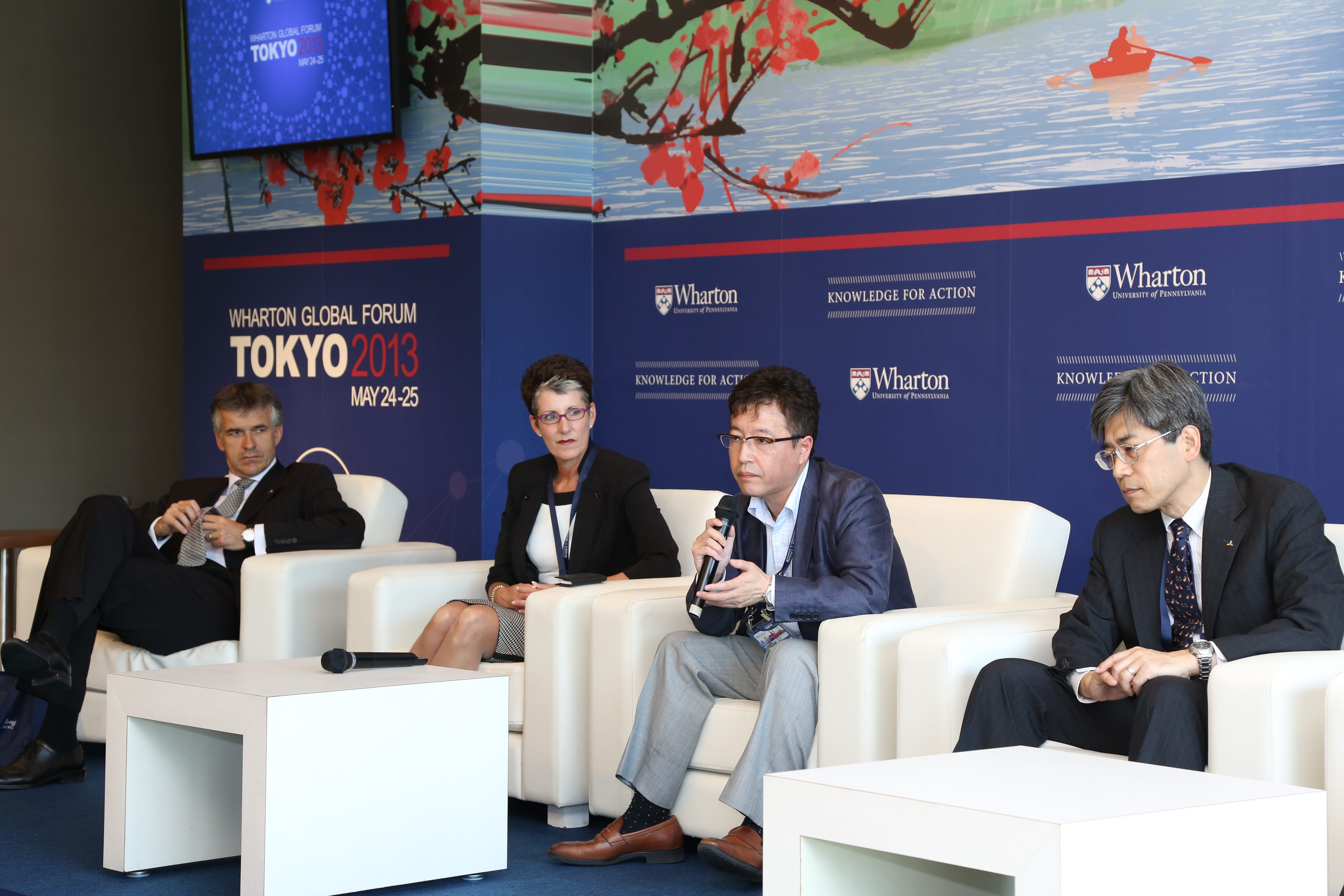Blending Wharton classroom concepts with international immersion, Wharton Global Modular courses expose students to new experiences—from Versace’s Milan headquarters in Italy to behind the wheel of a Nissan on a test track in Japan.
“During a Global Modular Course, we’re not watching a video, we’re not reading a case—we’re actually talking to the managers in depth and touring their facilities,” says Morris Cohen, Wharton’s Panasonic Professor of Manufacturing and Logistics. “We put these elements together in an appropriate context, ensuring that the course isn’t just a range of visits, but a cohesive learning experience.”
Cohen taught the new course “Global Operations (Supply Chain) Management in Japan” with John Paul MacDuffie, an associate professor in the Management Department. The six-day course focused on global supply chains operated by Japanese corporations and multinational companies operating in Japan. Through course materials, lectures, conversations with managers and site visits to some of Japan’s leading companies, students examined the dynamics of global competition and how various organizations are responding to shifting global markets.
The class kicked off in May during the Wharton Global Forum Tokyo, during which students engaged with hundreds of business executives and Wharton alumni, attended the Forum’s keynotes and master classes, and participated in a private panel featuring leaders from Boeing and Mitsubishi Heavy Industries. The integration of Forum content into the course exposed students to insights from panelists in a range of industries and functions. After the Forum, students visited Nissan’s Oppama plant and its Global Production Engineering Center, Tokyo Electron and Fujitsu Isotec.
“Students learned a lot—they don’t usually have the chance to visit manufacturing factories, and these were some of the best plants in the world,” says Cohen. “They really got to see how this part of business works, and for many it was an eye-opening experience.”
Cohen credits the success of the course to the involvement of Wharton alumni.
“They were instrumental, and put in an enormous [amount] of effort in bringing this all together,” he says. “I’ve visited a lot of companies in my day, and during each visit, we got the five-star treatment. It was a lot of very intense learning, and our alumni really made this possible.”
Junichi Endo, WG’93, who served as a member of the organizing committee for the Wharton Global Forum Tokyo, was one alumnus who became deeply involved with the course, helping organize site visits, connect Forum content to course content, and even writing a position paper on Nissan’s global supply chain management as a supplement for students to read before their visits. (Cohen notes that this paper could evolve into a case for future courses).
While Endo believes that Wharton’s commitment to admitting a diverse student body is a great accomplishment, he also notes that this is not enough to truly provide students with a global perspective. That is why each Global Modular Course is so valuable—and why alumni participation is important.
“By leveraging the alumni network in the local community, we buttress the School to access great speakers of high relevance for the course in each community,” he says.
“Global Operations (Supply Chain) Management in Japan” was one of 13 Global Modular Courses offered during the 2012-2013 academic year.
Editor’s note: To learn more about Wharton’s Global Modular Courses, access the recent article in Wharton Magazine, “Academic Encounters of a Global Kind,” or visit the Wharton Global Initiatives site.

























